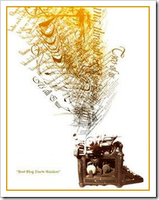The opposite of love is not hate; it is indifference. Indeed, love and hate have much in common, including intense energy, focused attention, motivation, goal oriented behaviors, and craving. Because of the way the brain is built, we can feel both intense romantic love and deep “hate/rage” almost simultaneously. It’s a bad combination.
I say this, of course, in response to the tragic story of Lisa Nowak, esteemed astronaut who drove 950 miles wearing diapers so she wouldn’t have to stop, donned a trench coat and wig, and stalked her romantic rival as this woman walked to her car in an airport parking lot. Through a two inch slit in the car window, Lisa then sprayed her competitor with pepper spray. And after the woman sped away, she disposed of her cache of questionable utensils in a garbage can: a BB pistol, a steel mallet, some rubber tubing, several plastic garbage bags, a knife with a four inch blade, and $600.
Why are Americans transfixed by this story? Can we remember times when we, too, wanted to maim a rejecting lover or romantic rival? Do we feel that if an astronaut can “lose it,” maybe we might?
I have something to add. I and my colleagues have just completed a study of the rejected brain in love. We put 15 men and women into a brain scanner and watched what happens when a spurned man or woman looks at the photo of their abandoning sweetheart. Several brain regions become active: Among them is a region associated with taking big risks for big gains and big losses, as well as a brain factory that registers physical pain. Other areas that “lit up” included those for obsessive-compulsive behaviors and for controlling anger.
This brain circuitry is no excuse to terrorize an innocent human being. But in Lisa’s case, her brain centers for impulse control were no match for her romantic ardor, pain, and fury.
“Parting,” Emily Dickinson wrote, “is all we need to know of hell.” I suspect that many of us have felt murderous at some point in our lives, but we controlled ourselves. Othello, however, Shakespeare’s tragic character who murdered his adored wife out of jealousy, represents the many who have fallen prey to this primordial, powerful, and sometimes horribly destructive brain system: romantic love.
Beach day parenting
8 months ago



































0 cherished words:
Post a Comment